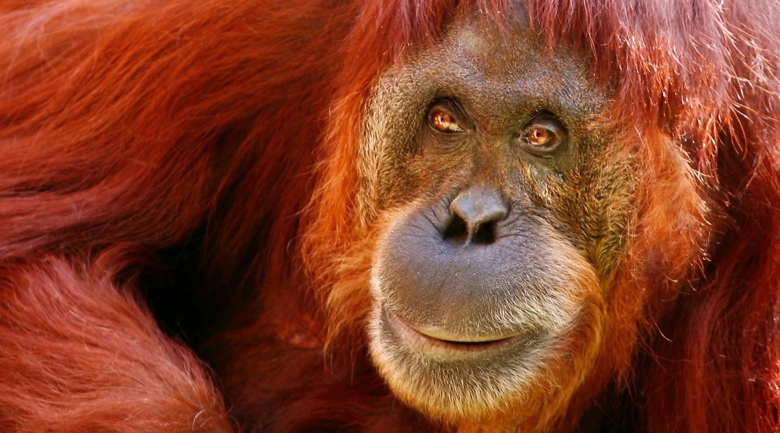
An orangutan copying sounds made by researchers offers new clues to how human speech evolved. Rocky mimicked more than 500 vowel-like noises, suggesting an ability to control his voice and make new sounds. It had been thought these great apes were unable to do this and, since human speech is a learned behaviour, it could not have originated from them.
Study lead Dr Adriano Lameira said this "notion" could now be thrown "into the trash can". Dr Lameira, who conducted the research at Amsterdam University prior to joining Durham University, said Rocky’s responses had been "extremely accurate".
The team wanted to make sure the ape produced a new call, rather than adapting a "normal orangutan call with a personal twist" or matching sounds randomly or by coincidence, he said.
The new evidence sets the "start line for scientific inquiry at a higher level", he said. "Ultimately, we should be now in a better position to think of how the different pieces of the puzzle of speech evolution fit together."
The calls Rocky made were different from those collected in a large database of recordings, showing he was able to learn and produce new sounds rather than just match those already in his "vocabulary".
In a previous study Dr Lameira found a female orangutan at Cologne Zoo in Germany was able to make sounds with a similar pace and rhythm to human speech.
Researchers were "astounded" by Tilda’s vocal skills but could not prove they had been learned, he said.
However, the fact that "other orangutans seem to be exhibiting equivalent vocal skills shows that Rocky is not a bizarre or abnormal individual", Dr Lameira said.
